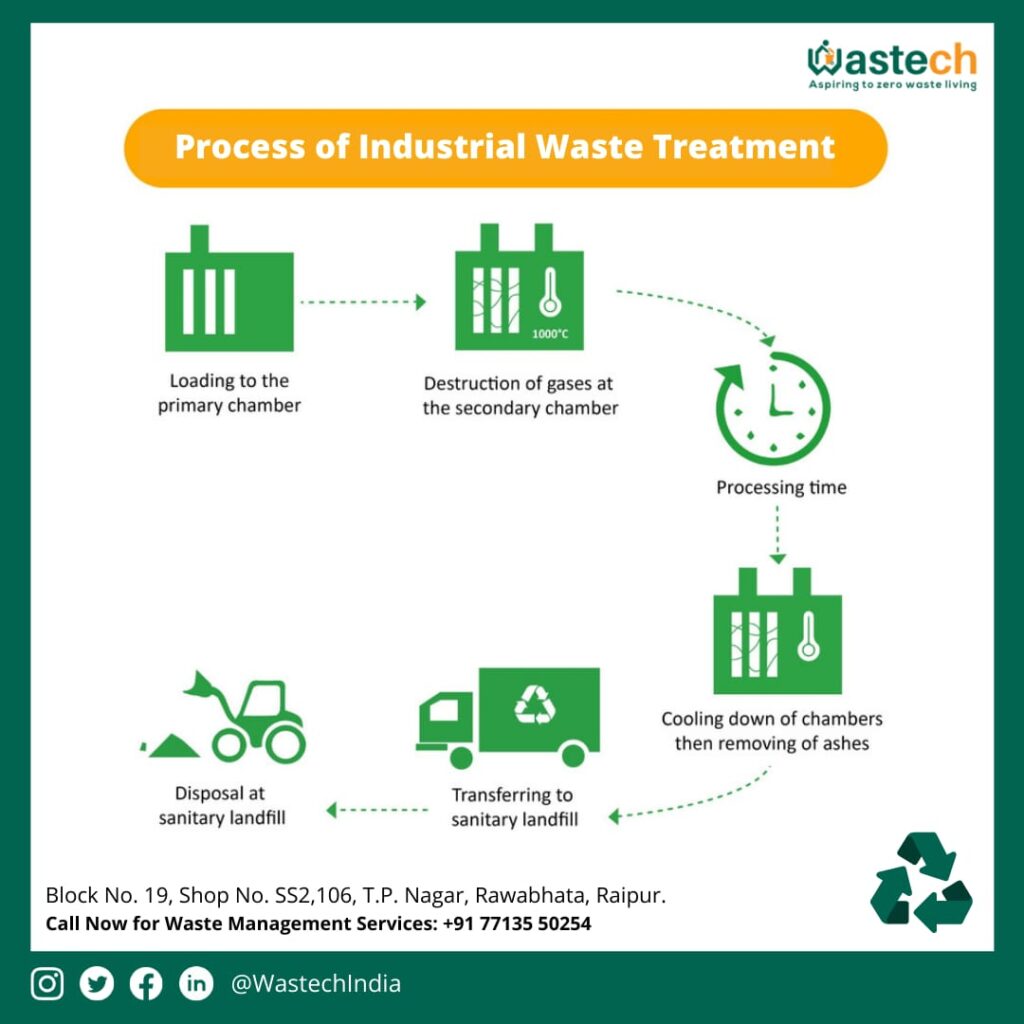Industrial waste is unwanted and residual waste produced by industries. This waste is produced from different manufacturing sectors like textiles, food, mining, industrial chemicals, printing, processing, etc. Industrial Waste in India is a huge concern.

Addressing the Issue:-
While certain measures have been undertaken to tackle India’s raging waste management concern by introducing segregation, composting, reusing, and recycling of the waste. Still, a lot remains to be done to segregate and treat waste properly. According to the studies, approximately 10 to 15 percent of industrial waste in India is considered hazardous. The Ministry of Environment, Forest, and Climate Change defines hazardous waste as any waste that is likely to harm health or the environment due to its physical, chemical, or biological composition. Petrochemicals, pharmaceuticals, chemicals, fertilizers, general engineering, and other industries in India produce hazardous wastes in considerable quantities.
Hazardous Waste in India:-
It is estimated that about 74.6 lakh tonnes of hazardous waste are generated annually in India. Among this, waste that can be disposed of in landfills constitutes nearly 34.1 lakh tonnes or 46 percent of the total. Recyclable hazardous waste consists of 33.5 lakh tonnes or 45 percent of the total trash in landfills. Hazardous waste is considered more dangerous due to its impact on our health and the environment. The combustible gas methane is a common by-product of hazardous waste accumulation. It is causing ailments such as lung infection, heart disease, and radiation leading to cancer. Methane affects water bodies, leaving them useless due to the accumulation of the gas on the surface.
Hazardous waste can leak into drainage systems and contaminate drinking water, making it unsafe. Industrialized nations such as Malaysia and Saudi Arabia also exported hazardous waste to India. India reprocesses and recycles it until the revamped rules of 2016 stopped it. Currently, India’s hazardous waste is in landfills used for ordinary waste dumping. Those dump sites are not scientifically designed landfills with exclusive designs to dispose of hazardous waste.
India dealing with Industrial Waste Management Issue:-
Poor handling of such waste in India is due to inadequate infrastructure for scientific disposal and recycling of hazardous waste. Burning hazardous waste in landfills is still one of the most popular and basic disposal methods. But it is causing significant hazards to our health and the environment. Hazardous trash is frequently collected and transported in the same container where the dry or wet waste is stored, posing additional challenges in segregation and recycling. The lack of incineration infrastructure in India is also a factor. Most trash collectors habitually burn waste at high temperatures, which is difficult to control. Hazardous waste collectors are typically under-equipped, under-trained, and underpaid.
Solution for Industrial Waste Management in India:-
With the Swach Bharat Abhiyan, the Indian government provided many startups with the opportunity to handle and offer unique ways to deal with waste management. Such initiatives by the government are leading the country to move forward to deal with this issue more scientifically. India can also learn from countries like Sweden and Estonia, which have introduced special trucks to collect hazardous waste, transporting it directly to waste treatment plants.
With a ban on importing solid plastic waste, India has taken an active step to ensure that no hazardous waste from abroad ends up on its shores. The 2016 revised Hazardous Waste Management Code established guidelines to ensure the prevention, reduction, recycling, and safe disposal of hazardous waste. The rules also require state governments to allocate land to hazardous waste recycling warehouses, ensure proper registration, develop skills, provide equipment, and pay for the hazardous harm caused to the waste collection workers. The state government must also establish supervisory bodies to verify each state’s production and recycling of hazardous waste.